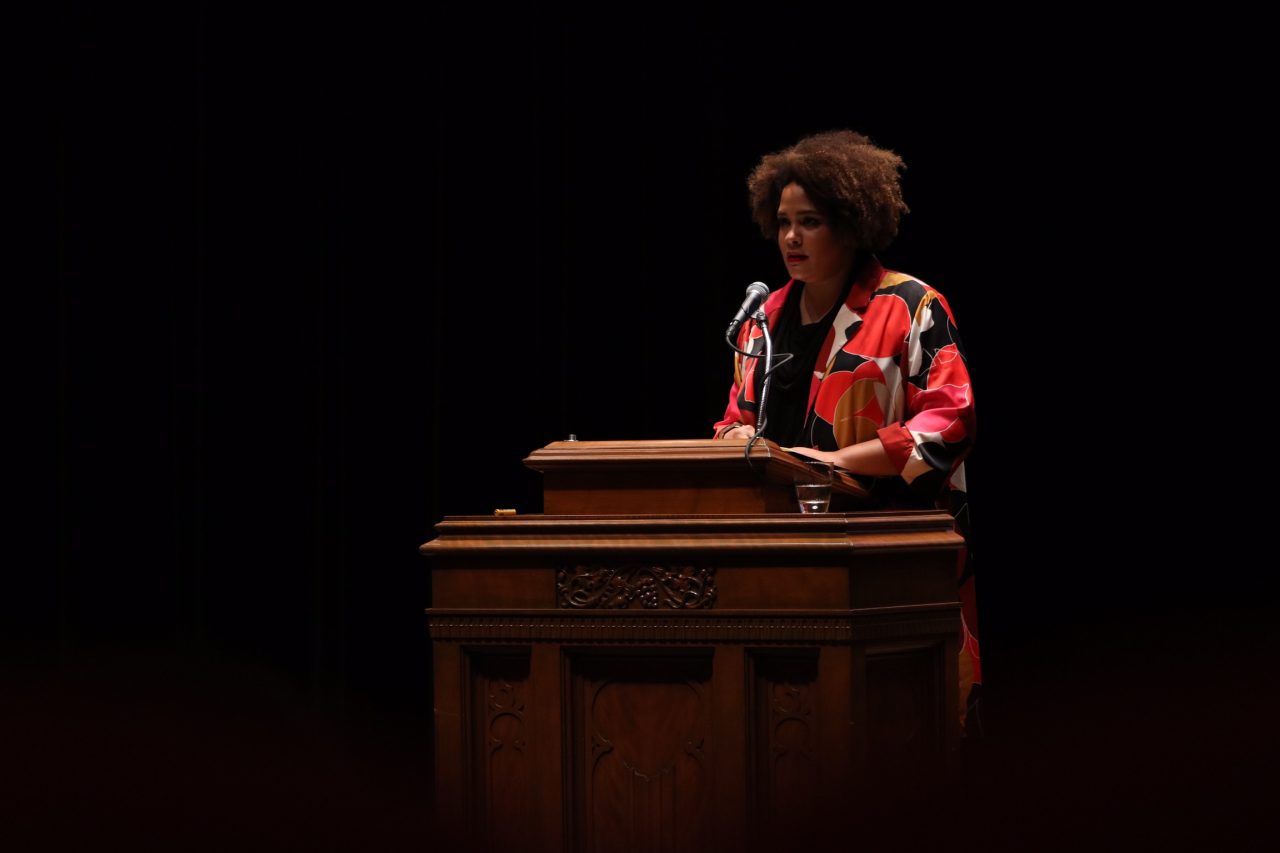Photo by Genevieve Humphreys
“Resistance is a muscle to be exercised.”
These are the words of Ijeoma Oluo, the speaker for the 2019 Martin Luther King Jr. Commemorative Lecture. Oluo spoke to a crowd of Trinity students and community members about the legacy of King and what his activism means in today’s society.
Alli Roman, director of the Diversity and Inclusion Office (DIO), decided to invite Oluo because she felt her New York Times bestseller “So You Want to Talk About Race” would help Trinity carry on a conversation about race. The book, published in January 2018, was highly regarded by critics as an accessible and powerful read.
“As someone who does a lot of social justice trainings, race often remains the elephant in the room, and I have struggled at times on how to best have these conversations,” Roman wrote in an email interview. “As a practitioner, I found her book to be refreshing, direct, accessible and essential. I knew that this would now be part of my tool kit.”
Throughout her lecture, Oluo spoke about King as a revolutionary, saying how his peaceful and harmless image is not representative of his activism.
“Dr. King believed that white America had a responsibility to deconstruct white supremacy, and in order to deconstruct it, we actually had to bring the problem to white America,” Oluo said in her lecture.
When comparing the impact of King in the peak of the Civil Rights Movement to current day, Oluo emphasized that much more work remains to be done.
“I hoped that we would have more to celebrate in 2019,” Oluo said.
Oluo went on to discuss the responsibility of white Americans to dismantle systematic racism, the importance of supportive communities for people of color and how activism and advocacy for people of color must come from continuous action, not just intention.
“If I say that you hit me, you saying that you did not mean to hit me does not make it hurt less. Especially when you stood by when I was hit before by someone else,” Oluo said.
Khaniya Russell, senior and president of Trinity’s Black Student Union, introduced Oluo to the audience. She felt that Oluo raised important points about ways to tackle racism in our communities.
“I think the most impactful parts of Ms. Oluo’s lecture were those in which she articulated practical ways we all can dismantle racially oppressive systems. We all can push ourselves to have uncomfortable conversations, check the ways in which we contribute to those systems and give our support and commitment to people and groups that are working toward justice and equity for all people,” Russell wrote in an email interview.
Russell hopes that the Trinity community continues to engage with productive conversations about racism beyond the context of MLK week.
“Through marching together, watching films and reading literature about the Civil Rights Movement, this week has been about bringing Dr. King’s dream to the forefront of our minds and honoring his legacy, but we can all work to bring our society closer to his dream all year long,” Russell wrote. “I hope that the Trinity community stays engaged and committed to tackling racial oppression when it’s not MLK Jr. week. We can all be working, especially on a college campus, to do our part to dismantle oppressive systems. College campuses are the perfect spaces to have difficult conversations and to educate ourselves on these issues.”
While Roman did not have an official count of how many people attended the lecture, she said she was very happy about the excitement from the community.
“She delivered. She challenged us. She affirmed us,” Roman wrote.













